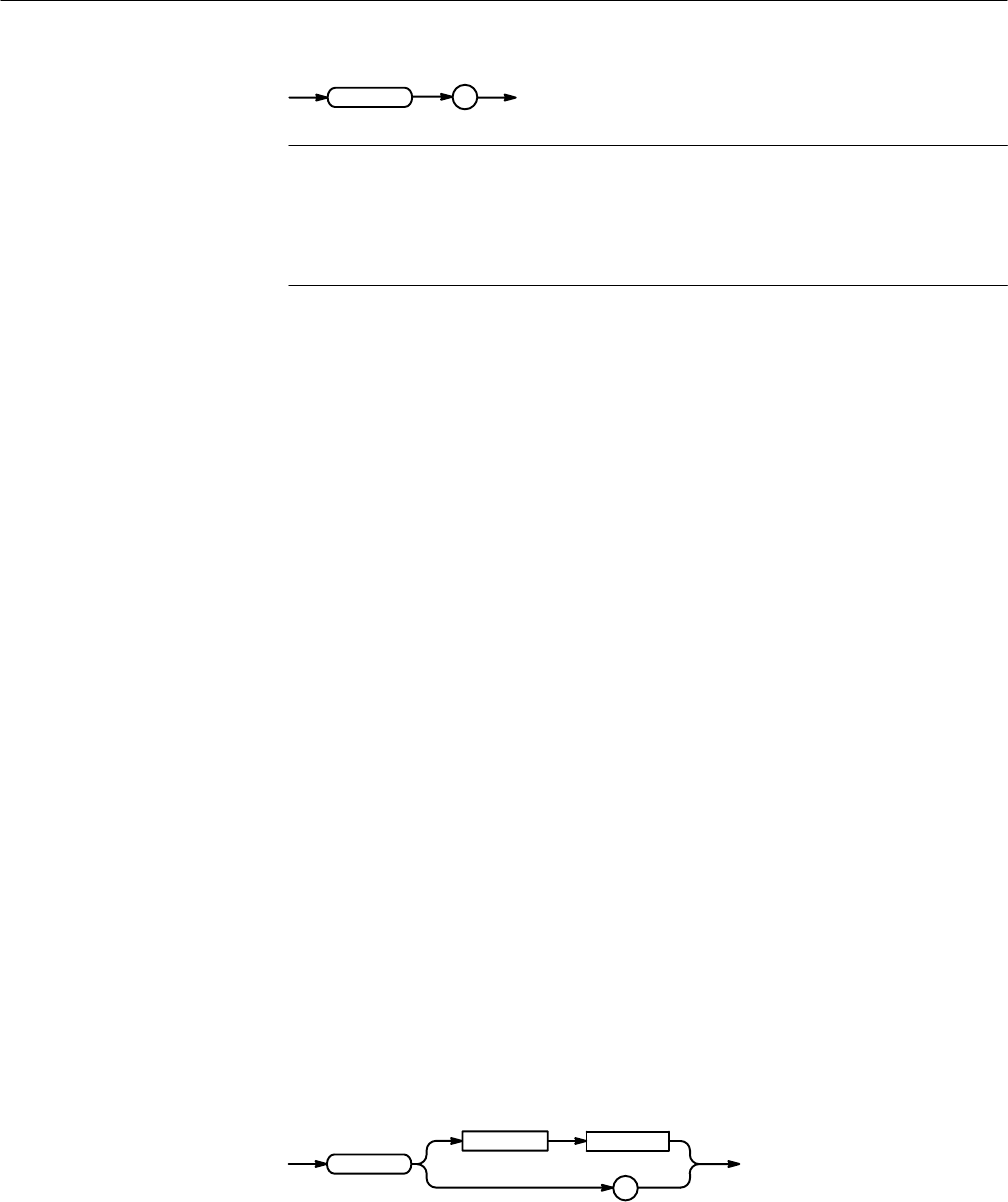
Command Descriptions
2–262
TDS Family Oscilloscope Programmer Manual
SET
?
NOTE. The SET? query always returns a string with command headers,
regardless of the setting of the HEADer command. This is because the returned
string is intended to be able to be sent back to the digitizing oscilloscope as a
command string. The VERBose command can still be used to specify whether the
returned headers should be abbreviated or full length.
SET?
a partial return string may look like this:
:ACQUIRE:STOPAFTER RUNSTOP;STATE 1;MODE SAMPLE;NUMENV 10;NUMAVG
16;REPET 1;:APPMENU:TITLE "Application Menu";LABEL:BOTTOM1
"";BOTTOM2 "";BOTTOM3 "";BOTTOM4 "";BOTTOM5 "";BOTTOM6 "";BOTTOM7
"";RIGHT1 "";RIGHT2 ""; RIGHT3 "";RIGHT4 "";RIGHT5 "";:HEADER
1;:VERBOSE 1;:ALIAS:STATE 0;:DISPLAY:FORMAT YT;STYLE VECTORS;
FILTER SINX;PERSISTENCE 500.0E-3;GRATICULE FULL;TRIGT 1;INTENSIĆ
TY:OVERALL 85;WAVEFORM 75;TEXT 60;CONTRAST 150;:MESSAGE:SHOW
"hello";STATE 1;BOX 74,84,475,135;:LOCK NONE; :HARDCOPY:FORMAT
EPSIMAGE;PORT GPIB;LAYOUT PORTRAIT;
*SRE
(Service Request Enable) sets and queries the bits in the Service Request Enable
Register (SRER). For a complete discussion of the use of these registers, see
page 3–1.
Status and Error
*CLS, DESE, *ESE, *ESR?, EVENT?, EVMSg?, FACtory, *PSC, *STB?
*SRE <NR1>
*SRE?
?
<Space>
<NR1>
*SRE
<NR1> is a value in the range from 0 to 255. The binary bits of the SRER are set
according to this value. Using an out-of-range value causes an execution error.
Examples
Group
Related Commands
Syntax
Arguments
